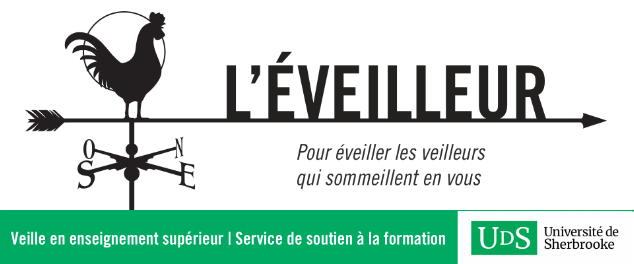Dans les pages d’opinion du New York Times, un dossier intitulé « Is Facebook a Fad? Will Our Grandchildren Tweet ? ». On y trouve notamment un court billet de Sherry Turkle, sociologue et psychologue au MIT et auteure de plusieurs ouvrages sur les rapports entre technologies et relations humaines. D’après elle, nous en sommes aux premiers balbutiements des médias sociaux. Ils ne disparaîtront pas, mais nous manquons encore de distance critique. Lorsque nous deviendrons des consommateurs responsables de médias sociaux, il nous faudra avoir les trois « conversations » suivantes.
- Culture du paraître – « …[S]ocial media make it easy for us to hide from each other, even as we are constantly connected to each other. […] [O]nline, we end up performing for each other, putting forth the self we want to be. With friends, we share what is easy to share. At work, we don’t like to archive false starts and missteps. So in many cases, we make it harder to learn from each other and mentor each other. » Ces performances rendent difficiles des relations transparentes et authentiques.
Elle explique ensuite que ces jeux de cachette sont d’autant plus handicapants pour les enfants qui apprennent encore les règles sociales : « [O]n social media, children don’t learn negotiation skills, how to read a face, how to put themselves in the place of another, how to apologize… » - Vitesse et volume de la communication – La productivité devient synonyme de multiplications des échanges brefs… « …We demand immediate answers and are willing to ask simple questions to get them. We come to measure success by e-mails answered, connections made, posts responded to. We become transactional and reactive. This is not good for productivity or creativity. »
- Vie privée – « What is democracy without privacy? What is intimacy without privacy? »
Est-ce que ce type de réflexions sur l’utilisation des médias sociaux ne devrait pas faire partie de la littératie numérique que l’université devrait développer chez ses étudiants ?
Source :
Turkle, Sherry, « The Creep of Social Media Raises Big Questions », Room for Debate, The New York Times, 19 juin 2012







Intéressant. Je lisais justement ce matin une publication sur les premiers résultats de recherches portant sur l’utilisation pédagogique de Facebook, et certaines des recommandations rejoignent les constats de Turkle:
http://www.springerlink.com/content/u3j1u353u6671g1k/
Voici un court extrait des conclusions de l’article que je mentionnais dans mon commentaire précédent:
“Educators should evince more interest in the use of Facebook within educational contexts, as Eberhardt (2007) suggests that educators could develop approaches and strategies to help students use their networking behavior to enhance their learning and development. Teachers also need to garner more positive attitudes towards the possibilities of using Facebook in their teaching activities, although Johnson (2010) evaluates Facebook as a distraction in any teaching and learning environment. Moreover, research results should be used to train teachers in using Facebook within education. Teclehaimanot and Hickman (2011) note that a comprehensive understanding of how these technologies can best be utilized in education is still lacking. Finally, as Facebook has been underutilized within educational contexts (Dreher et al. 2009), more research and practices are necessary.”
Sherry Turkle a offert en février 2012 une conférence TED très éclairante sur le même sujet :
« Connected, but alone ? » http://www.ted.com/talks/sherry_turkle_alone_together.html
« The best way to describe it is, I share therefore I am. We use technology to define ourselves by sharing our thoughts and feelings even as we’re having them. So before it was: I have a feeling, I want to make a call. Now it’s: I want to have a feeling, I need to send a text. The problem with this new regime of “I share therefore I am” is that, if we don’t have connection, we don’t feel like ourselves. We almost don’t feel ourselves. So what do we do? We connect more and more. But in the process, we set ourselves up to be isolated.
How do you get from connection to isolation? You end up isolated if you don’t cultivate the capacity for solitude, the ability to be separate, to gather yourself. Solitude is where you find yourself so that you can reach out to other people and form real attachments. When we don’t have the capacity for solitude, we turn to other people in order to feel less anxious or in order to feel alive. When this happens, we’re not able to appreciate who they are. It’s as though we’re using them as spare parts to support our fragile sense of self. We slip into thinking that always being connected is going to make us fell less alone. But we’re at risk, because actually it’s the opposite that’s true. If we’re not able to be alone, we’re going to be more lonely. And if we don’t teach our children to be alone, they’re only going to know how to be lonely. » [mes emphases]